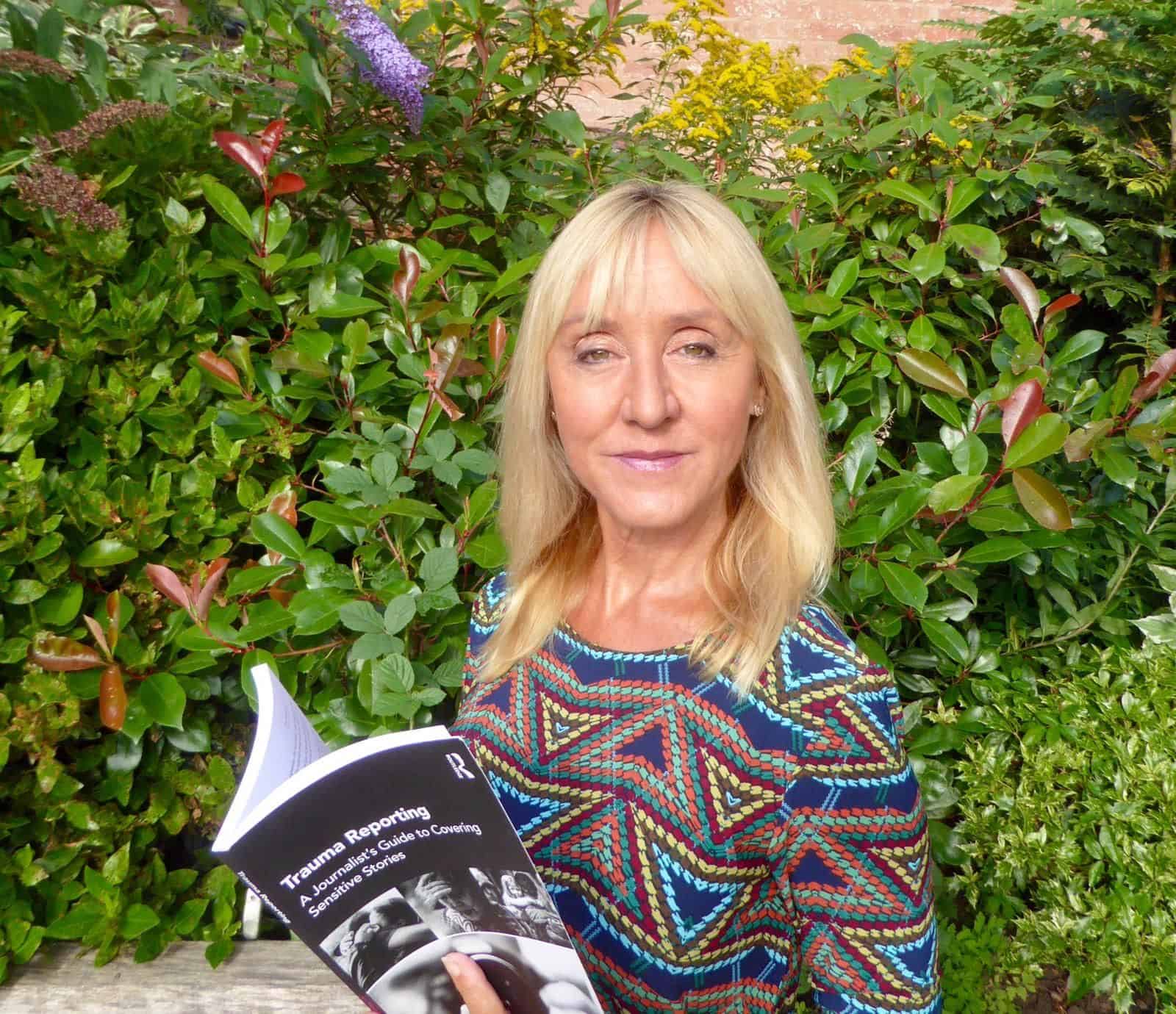Reporting on Covid-19: remote interviewing
Jo Healey is a senior BBC news journalist. She developed and delivers Trauma Reporting training through the BBC Academy. She is the author of Trauma Reporting, A Journalist’s Guide to Covering Sensitive Stories. She is an associate trainer with The Dart Centre for Journalism and Trauma. Here she shares some tips:
Working with people who are grieving always requires sensitive handling, but there are some added considerations when interviewing people remotely who have been bereaved through coronavirus.
- Their loved one may well have died alone, so they may feel guilt, shame , anger, frustration, disbelief, hurt, a sense of injustice
- Your interviewee may be grieving in isolation or semi isolation without the comfort of hugs, flowers, cards or cups of tea with friends and family
- Funerals can be small, difficult to organise and restrictive, compounding a sense of guilt and frustration. The normal ritual and scaffolding around death has been removed
- They are surrounded by information and speculation about the virus which killed their loved one
- Deaths can be seen as data. This can hurt. They’ve lost their partner, friend, relative, not a statistic.
- There can be a sense of fear and anxiety that they or other family members could die too. A sense that no one is safe or even guilt that they may have infected their loved one
Bear all this in mind and try to apply these tips when interviewing people remotely. Unlike regular filming or interviewing, you aren’t physically with them to ease their way through the process. They need extra support from you before, during and after the interview. Some things to consider:
Before the interview
- They may have been getting calls from the hospital, using a withheld number. Therefore, avoid ringing them on the office landline, preferably use your mobile.
- Acknowledge their grief. A sincere sorry for what has happened is a decent human thing to say
- Be prepared. Be clear and honest about what you would like to do, what you may like to ask them and listen to their opinions. It is important throughout that you give them a sense of control
- Check the facts with them carefully. Inaccuracy will distress.
- Build rapport, bridge that sense of separation but avoid sharing your opinions about the virus. The interview is about them, not you
- Trauma affects people in all sorts of different ways. Avoid making assumptions about how they should respond
Dealing with technology
- Some people are more technically savvy than others. If necessary, talk them patiently through the process before you link up remotely.
- At this stage, it may be worth making basic suggestions, such as not positioning themselves in front of a window for the video interview. Handle it tactfully. This can be preferable to asking them to move around the room once they are on camera.
- If technical people are involved in the link up, make them aware that the contributor needs sensitive handling. Try to do the interview in a quiet spot
- Preferably use a system where the interviewee can see you, rather than just hear your questions. Use empathetic body language: eye contact, nodding, listening carefully. Give them time, don’t hurry them
- Check the background to the shot. Is there anything on show which may embarrass them or distract.
During the interview
- Check they are comfortable. Use short, simple, open questions
- You aren’t there to hold them to account, but to hear their accounts. Be careful with challenging ‘why’ questions.
- Avoid provoking an emotional response and the cattle-prod question ‘how do you feel’. You aren’t alongside them to deal with the emotional fall out
- Avoid saying ‘I know how you feel’. You don’t. From a distance, these remarks can feel more insensitive
- Trauma can be exhausting. It can also disorder thoughts affecting recall and concentration. Make allowances
- Even though you are communicating remotely, they need to know you are also human, attentive, sensitive and respectful.
- Structure your interview so you gently bring them back from distressing memories and into the present moment before you leave them
- If they break down, allow them space and control. Check they have someone with them or someone they can call
Ending the interview
- Manage expectations. How may the interview be used? How much may be used? Who else may be in the report? Where else may the interview go? They need to know if clips and pictures may pop up elsewhere
- Thank them and take your time with them before ending contact to avoid it feeling like an abrupt ‘cutting off’. Take care not to be distracted or dismissive
- After a remote interview, they can be feeling vulnerable, unsure, isolated. Particularly at the moment. Contact them and reassure them. Also, contact them after your piece has been broadcast or published to give them the chance to talk to you about it. This is really important, particularly in lockdown
These are tough times for journalists too. You are being exposed to trauma and you too can be isolated. Soon after the interview, talk it through with someone you trust and respect. Look after your interviewee, look after yourself and look after each other.
Author photo
